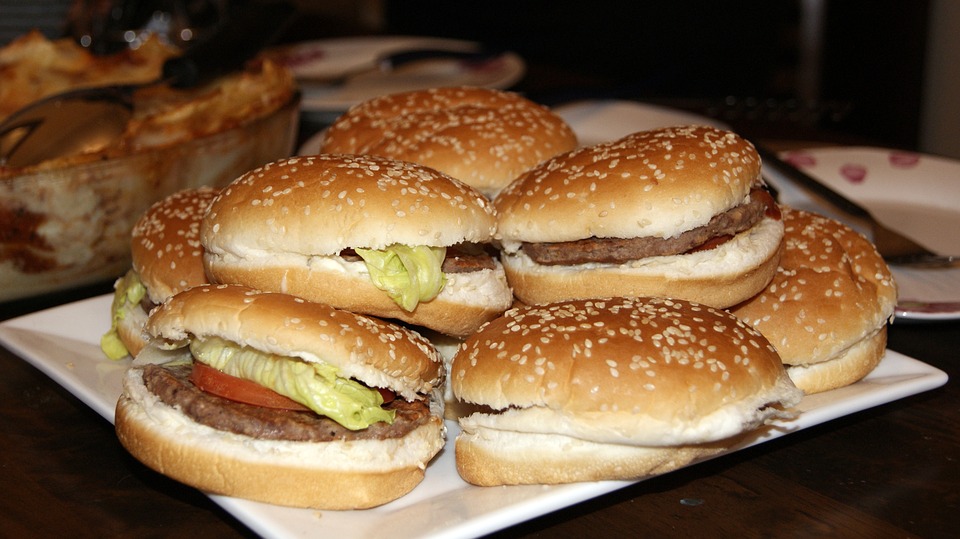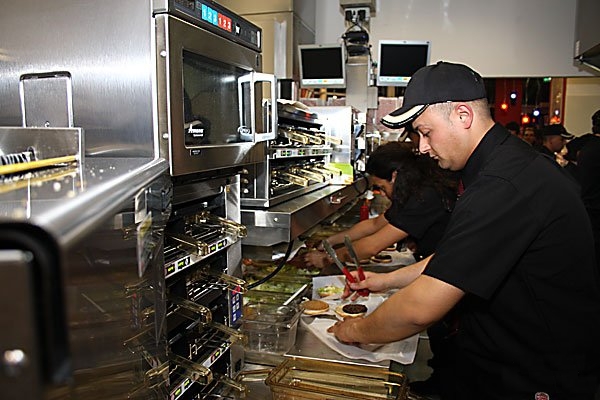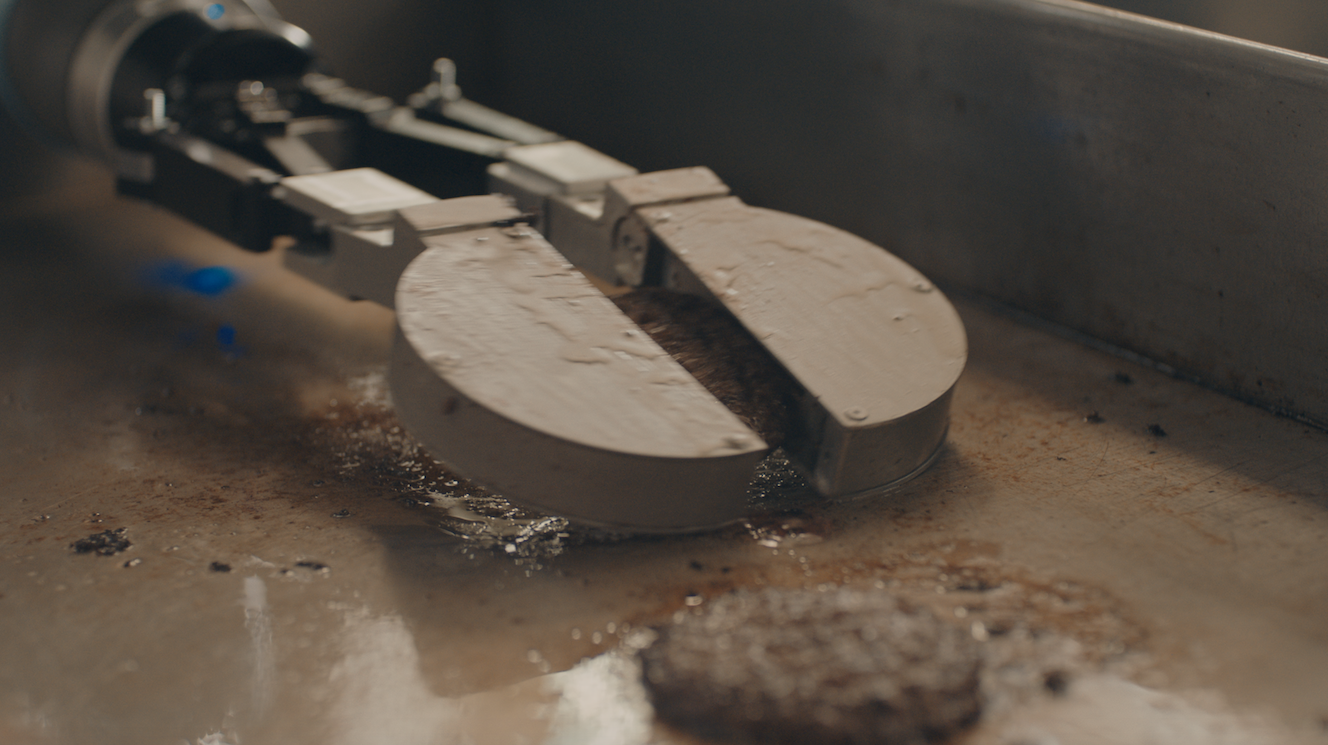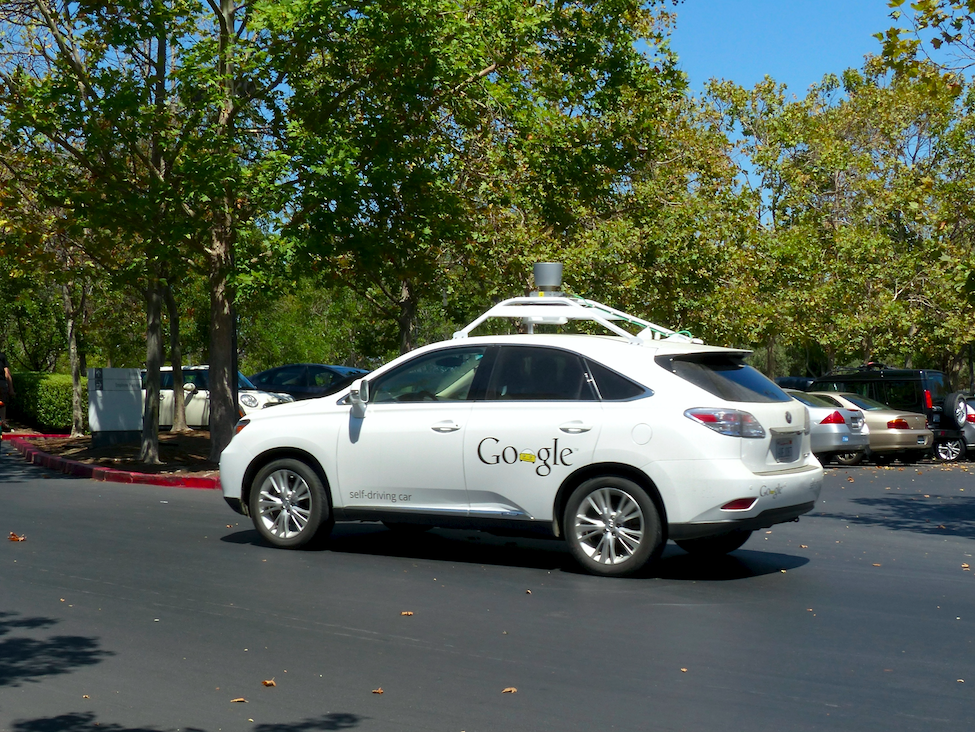These Robots Are Changing the Face of Fast Food

By:
Earlier this year Treasury Secretary Steve Mnuchin said the threat of automation taking the jobs of working people wasn't “even on our radar screen.”
 Pixabay - pixabay.com
Pixabay - pixabay.com
The folks over at Momentum Machines say otherwise.
Momentum Machines, a San Francisco tech company, has created a fully autonomous robot capable of churning out 400 burgers in an hour—an innovation that could drastically impact restaurant workers.
Not only does Momentum Machine's robot grill the meat, they also claim it creates a completely customizable and fresh burger. The machine starts by creating a custom blend of ground meat before forming the selection into a patty and sliding it onto a gourmet oven. The machine dices all of the vegetables to order (no more brown lettuce) and can also throw on a dollop of ketchup, stick the patty between a bun, and even wrap it up—all without needing a single human hand.
Last month, the company received $18 million in funding.
The tech company is already working on opening its first storefront in the Bay area, Business Insider reports.
Momentum Machines isn’t the only burger bot in the business.
Pasadena-based Miso Robotics has created a machine dubbed Flippy, which—you guessed it—flips patties to perfection by use of an automated claw-like machine and AI software. Flippy still needs some help from humans, with the designers expecting humans to slap on the lettuce, tomato, and onion to complete the burger. Fast-casual restaurant CaliBurger has committed to installing Flippy in 50 of its restaurants over the next two years, TechCrunch reports.
While supporters hail these innovations as a means to create a consistently perfect burger, the consequences for the fallible humans currently making the meals could be enormous.
Nearly 3 million Americans work as cooks and earn an average of $10.99 per hour, according to the Bureau of Labor Statistics.
 Wikimedia Commons - wikimedia.org
Wikimedia Commons - wikimedia.org
“Our device isn’t meant to make employees more efficient,” Alexandros Vardakostas, cofounder of Momentum Machines, told Xconomy in 2012. “It’s meant to completely obviate them.”
Last year, minimum wage workers protested across the country in the fight for a wage of $15 per hour. As fast food chains are grappling with these demands for higher wages, turning to automation could offset costs. The machines can produce more food, more quickly, and reduce food waste by eliminating human error. They also don’t get sick, need a paycheck, or get hurt on the job.
That makes investing in an automated flipping burger machine more cost-effective than hiring an employee. Vardakostas also told Xconomy that a single machine could replace upwards of three full-time employees, and save each franchise about $90,000 annually.
 Courtesy Miso Robotics - dropbox.com
Courtesy Miso Robotics - dropbox.com
While officials at both Miso Robotics and Momentum Machines say their storefronts will need other employees, like cashiers, the burger bots aren’t the only pieces of machinery replacing the need for human employees. Fast food joints like Wendy’s and McDonald’s have already started installing kiosks, which allow customers to place their orders without any human interaction.
These robots could replace the jobs of an already vulnerable group of American workers.
While many picture fast food workers as greasy teens slinging burgers after school for a little pocket change, the fast food workforce is actually comprises an older demographic.
Seventy percent of fast food workers are at least 20 years old with the average worker about 29 years old, according to the New York Times. Further, more than a quarter of these workers are single parents. More than half of families of fast food workers are enrolled in at least one public assistance program, according to research from the University of California, Berkeley.
The robotic takeover isn’t limited to fast food.
Roughly 38 percent of U.S. jobs could be replaced by robots within the next 15 years or so, according to research published by professional services network PricewaterhouseCoopers. Tech companies have already made headway in self-driving cars (potentially eliminating the need for car, bus, and truck drivers), robotic pharmacists, and robotic bricklayers to name a few.
 Roman Boed/Flickr - flickr.com
Roman Boed/Flickr - flickr.com
Although White House officials may not be concerned about automation replacing employees, some big names in tech are anticipating a vastly different future for American workers.
.jpg?auto=format&crop=faces&fit=crop&q=60&w=736&ixlib=js-1.1.0) Lori Tingey / Wikimedia Commons - wikimedia.org
Lori Tingey / Wikimedia Commons - wikimedia.org
Elon Musk has said that humans will need to merge with machines by “some high bandwidth interface to the brain” so we don’t become obsolete. Bill Gates suggested taxing robots that replace jobs held by humans, and use the revenue to fund other types jobs. Stephen Hawking said that automation will either create a society where everyone lives a life of leisure or further contribute to income inequality.
“It’s likely to be either the best or worst thing ever to happen to humanity,” Hawking said of AI on Reddit. Either way, automation is coming whether or not the work force is ready for it.
